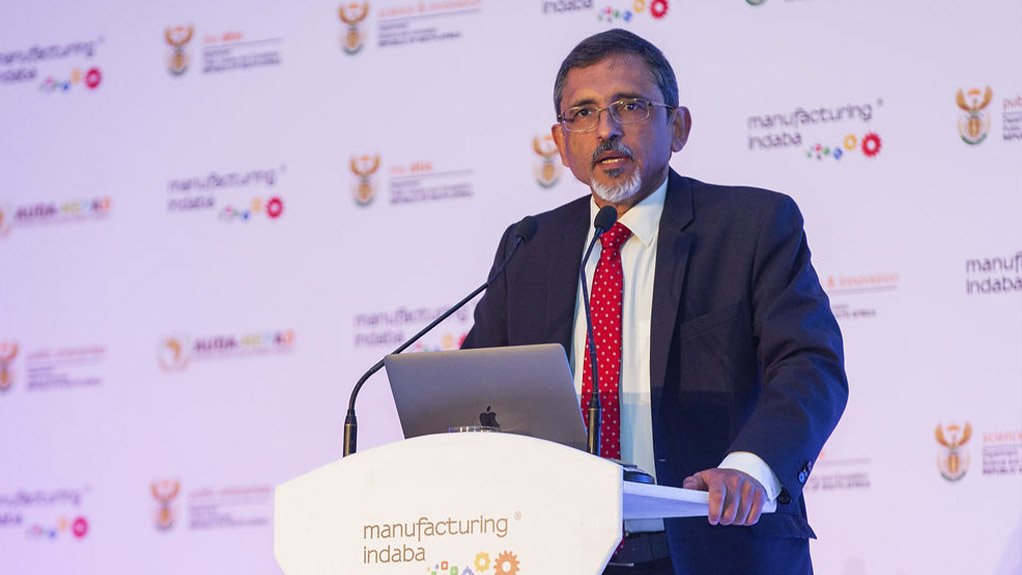key challenges hindering manufacturing growth in Africa in 2024
This article has been supplied.
As Africa strives for economic advancement, the manufacturing sector remains a critical driver of growth and development. However, several challenges continue to impede the sector's expansion across the continent. In 2024, these challenges stand as formidable barriers to Africa's manufacturing potential and they include:
Infrastructure Deficiencies: Inadequate infrastructure, including transportation networks, energy supply, and logistical services, poses a significant obstacle to manufacturing growth. Insufficient infrastructure increases production costs, hampers distribution efficiency, and diminishes competitiveness in the global market.
Access to Finance: Limited access to affordable finance restricts manufacturers from investing in modern technology, expanding operations, and enhancing productivity. The lack of financing options, particularly for small and medium-sized enterprises (SMEs), stifles innovation and hinders business growth.
Skills Gap and Human Capital Development: The manufacturing sector demands a skilled workforce proficient in modern manufacturing techniques and technologies. However, a prevalent skills gap across Africa hinders industry growth, as educational systems often fail to provide relevant training and technical skills.
Trade Barriers and Tariffs: Non-tariff barriers, trade restrictions, and complex customs procedures obstruct intra-regional trade and hinder the development of regional value chains. Simplifying trade procedures and reducing tariffs within regional blocs can stimulate manufacturing activities and improve market access.
Political Instability and Security Concerns: Political instability, conflicts, and security challenges in certain regions disrupt manufacturing operations, deter foreign investment, and undermine supply chain reliability. Persistent conflicts pose a threat to production, infrastructure, and investor confidence.
Technology Adoption and Innovation: Limited adoption of advanced technologies and innovation in manufacturing processes impedes productivity gains and competitiveness. Access to affordable technology solutions and barriers to technology transfer hinder manufacturing modernisation efforts.
Energy Access and Reliability: Inconsistent power supply and high energy costs pose significant challenges to manufacturing operations. Inadequate electricity infrastructure leads to frequent blackouts and increased reliance on costly backup generators, elevating production expenses.
Regulatory Environment and Red Tape: Cumbersome regulatory processes, bureaucratic inefficiencies, and corruption hinder business operations and deter foreign investment. Streamlining regulations, improving governance, and enhancing transparency are essential for fostering a conducive business environment.
Addressing these challenges requires collaborative efforts from governments, private sector stakeholders, and development partners. The Manufacturing Indaba scheduled for 22 – 23 October 2024 in Johannesburg, South Africa, will be unpacking solutions to the challenges and how to overcome them to unlock the growth potential for Africa’s manufacturers. Implementing targeted policies, investing in infrastructure and human capital, promoting regional integration, and fostering innovation are crucial for unlocking Africa's manufacturing potential and driving sustainable economic development.
Article Enquiry
Email Article
Save Article
Feedback
To advertise email advertising@creamermedia.co.za or click here
Press Office
Announcements
What's On
Subscribe to improve your user experience...
Option 1 (equivalent of R125 a month):
Receive a weekly copy of Creamer Media's Engineering News & Mining Weekly magazine
(print copy for those in South Africa and e-magazine for those outside of South Africa)
Receive daily email newsletters
Access to full search results
Access archive of magazine back copies
Access to Projects in Progress
Access to ONE Research Report of your choice in PDF format
Option 2 (equivalent of R375 a month):
All benefits from Option 1
PLUS
Access to Creamer Media's Research Channel Africa for ALL Research Reports, in PDF format, on various industrial and mining sectors
including Electricity; Water; Energy Transition; Hydrogen; Roads, Rail and Ports; Coal; Gold; Platinum; Battery Metals; etc.
Already a subscriber?
Forgotten your password?
Receive weekly copy of Creamer Media's Engineering News & Mining Weekly magazine (print copy for those in South Africa and e-magazine for those outside of South Africa)
➕
Recieve daily email newsletters
➕
Access to full search results
➕
Access archive of magazine back copies
➕
Access to Projects in Progress
➕
Access to ONE Research Report of your choice in PDF format
RESEARCH CHANNEL AFRICA
R4500 (equivalent of R375 a month)
SUBSCRIBEAll benefits from Option 1
➕
Access to Creamer Media's Research Channel Africa for ALL Research Reports on various industrial and mining sectors, in PDF format, including on:
Electricity
➕
Water
➕
Energy Transition
➕
Hydrogen
➕
Roads, Rail and Ports
➕
Coal
➕
Gold
➕
Platinum
➕
Battery Metals
➕
etc.
Receive all benefits from Option 1 or Option 2 delivered to numerous people at your company
➕
Multiple User names and Passwords for simultaneous log-ins
➕
Intranet integration access to all in your organisation



















